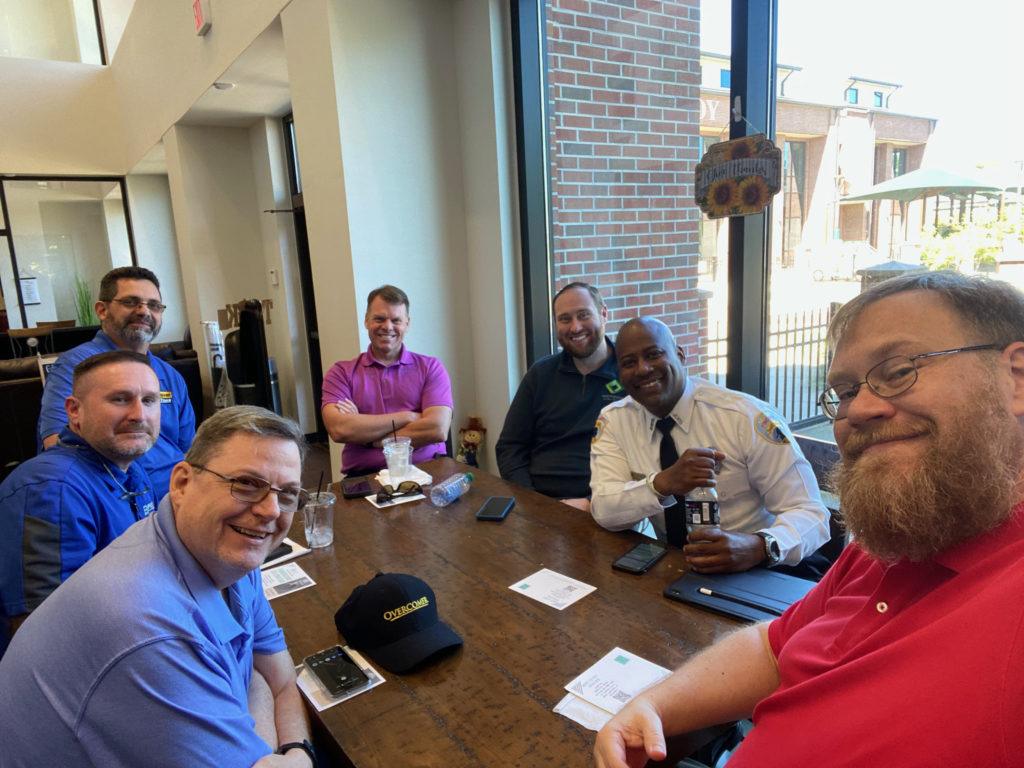 [1]
[1]ALBANY, Ga. (BP) – In his six years working with pastors in Mallary Baptist Association, Hans Wunch had time to observe one of their most valuable commodities.
That would be time itself, Wunch realized.
 [2]
[2]A way to make the most of it came last summer from a suggestion by his son Micaiah, visiting home on a break from his studies at Southeastern Baptist Theological Seminary.
“I’ve struggled to find effective ways to assist and serve them,” Wunch said. “Micaiah asked me, ‘So, when are you going to start a podcast?’
“After the question sunk in, it made sense. Nearly all of my bivocational pastors have a drive of 30 minutes or more during their week. If I had a podcast that focused on them and other busy pastors and kept each episode to 30 minutes or less, that could be useful.”
And so emerged the most ready-made and practical name in all of podcastingdom – Wunchtime.
Available on Apple, Spotify and Google podcasts twice a month, Wunchtime posted its first episode in September and adheres to the aforementioned time limit. South Georgia is an area where it takes at least a little drive to get to your destination. Might as well make it educational.
Prior to arriving as associational mission strategist at Mallary, Wunch was a full-time pastor in South Carolina and had become well versed in the time demands of his schedule. For those also contributing a minimum (and usually more) of 40 hours weekly to their secular job, he empathized with the need for getting resources in a timely fashion.
Topics come from his own experiences but also the twice-a-month meetings during – yes, lunchtime – with pastors at The Source Cafe on the campus of Sherwood Baptist Church. “The Source welcomes our group each time and treats us like special guests,” he said.
“In my role I’m constantly trying to engage with my pastors,” Wunch said. “How do I make myself available to them? How do I provide content? During the pandemic we had a few Zoom calls with leaders like Mark Clifton [4] and Tim McKnight [5]. Those were well-received and we felt it was a natural progress [to keep using technology] from there.”
Popular episodes have discussed time management and how to plan out a preaching schedule. Wunch is sure to have his recording equipment whenever he travels for interviews. If those exceed the 30-minute limit, he divides them into two episodes.
Approximately 70 percent of Mallary Association’s pastors serve on a bivocational schedule. During the week they wear hats like city worker, forklift operator, USDA poultry inspector and owner of a business owner that makes diesel fuel additives. They’re husbands and fathers who are involved in their communities. It’s not uncommon for Saturday afternoon to sneak up and a sermon for the next day still hasn’t materialized.
And there are the issues they have to address. Underserved communities around the church. Helping others walk through family members diagnosed with dementia or Alzheimer’s. Reaching out to single adults. Dealing with grief and death. All of these are to be discussed in upcoming episodes, Wunch said.
Not surprisingly, he has received thanks from pastors outside of the association as well for the podcast. Wunch credits PJ Dunn, current North Regions Discipleship consultant at the Georgia Baptist Mission Board, with help in getting it off the ground when Dunn was a GBMB regional representative in southwest Georgia.
“A number of bivocational pastors are self-trained, so helping them further their education is important,” Wunch said. “The podcast has led us to do a training event in the association that was aimed toward bivocational pastors, including those in areas such as worship and youth.”
That event included four men who had never served as a pastor, ranging in age from early 30s to 69. Two of them had only preached in their home church. Another had done some supply and interim work as a pastor.
They represent others who may feel overwhelmed and underprepared. But they heard a call, and they answered it.
“These men need to be encouraged,” Wunch said. “Bivocational ministry is valid.
“And, it’s appreciated.”
